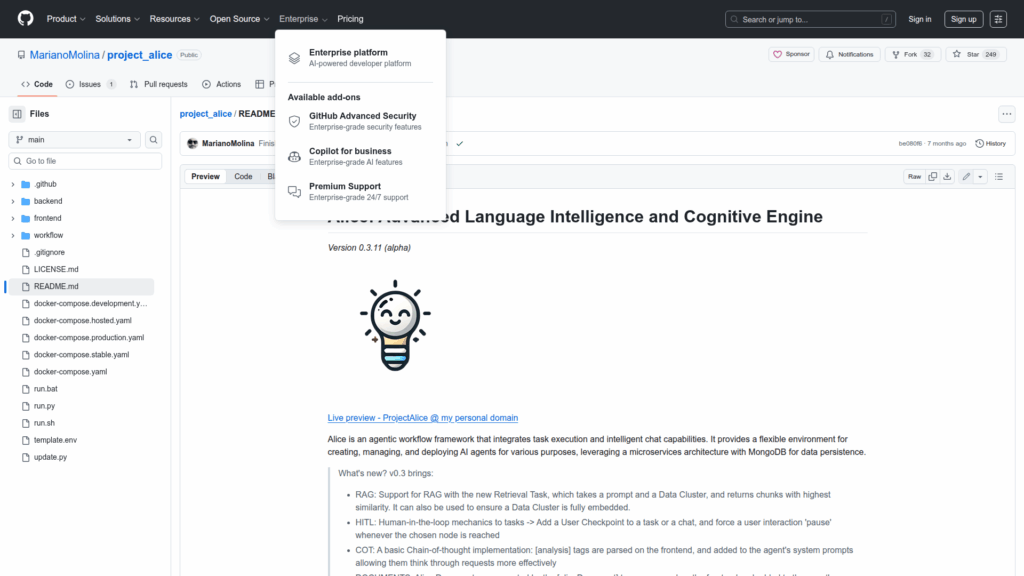project_alice
Basic Information
Project Alice is an open-source agentic workflow framework designed to create, manage and deploy AI agents and automated tasks. It combines conversational chat capabilities with a task execution engine in a microservices architecture that uses MongoDB for persistence. The repository contains three main components: a Node.js/Express TypeScript backend that manages the database, LM Studio interactions and file serving; a Python Workflow container built with Pydantic that implements task and chat execution logic; and a React TypeScript frontend that provides a flow viewer, task editor and chat UI. The project is model-agnostic and supports local and remote models, local LM Studio deployments and many API providers. It targets developers and teams who want a flexible environment to prototype agent workflows, run retrieval-augmented workflows, and deploy agents programmatically via exposed workflow endpoints.








